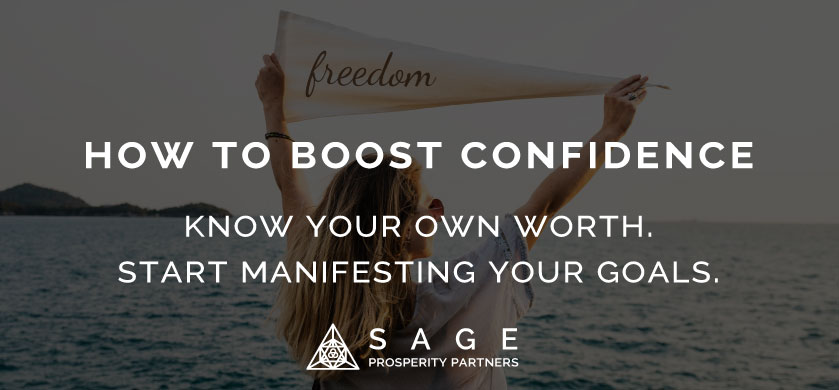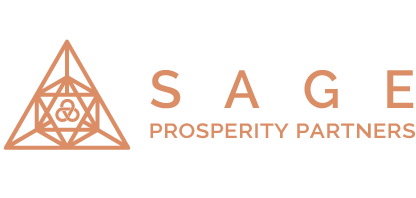
Know your own worth, and start manifesting your goals
Where does confidence come from?
Confidence is what I call “inner confidence,” defined as the quiet knowing of one’s worth, in self reflected truth and unwavering belief.
Inner confidence stems from our intuition, which is our innate ability to hear our internal compass. Our internal compass is not our “chatter box” mind, our subconscious; the repository of endless stimulus tapes derived from instincts and learned experiences. Intuition resides in our heart space, known to some people as their “gut instinct.” Intuition's messages are wisdom and arrive above our thoughts. This is why many people cannot explain intuition in words, as much as in feelings or sensations.
We all have the ability to possess true inner confidence, and it should resonate in all aspects of life, not just at work. When we master inner confidence, we successfully navigate the tricky minefield of emotions especially in a collective field of energy at work, at school and with family.
We gain inner confidence by being aware of our surroundings, our thoughts and actions, our influences, and the programs we project out into the world. Since our past experiences are sitting in our subconscious mind, it is very difficult to be aware of old programs, which keep us in self-defeating thoughts.
How to boost confidence
How we boost confidence in work (and in life) depends on the accountability we want to take for the “chatter box” running in our heads.
Many people associate confidence with performance, measurement, and external recognition of an achieved goal such as weight loss, physical appearance, project completions, fulfilled revenue goals, a promotion, financial rewards, etc., but confidence doesn’t always magically appear at the end of a goal, whether achieved or not.
Inner confidence is about setting an intention and placing our attention on it. This allows creative visualization, motivation, and enthusiasm to fuel our action. The intention behind our goals is deeply important to the manifestation of such goals. When an intention is fulfilled, inner confidence grows because we feel good, as if something shifted inside us and we are forever changed.
9 steps to becoming more confident
1. BE TRUE TO YOURSELF
Being true to yourself means deciding what is important to you while finding your resilience to blossom and grow. Confidence comes from laying out a strategic plan and deciding what specific actions you will take today. Following through on those actions and recognizing your perseverance while staying in a place that feels good are key to growing your confidence.
2. SELF-RECOGNITION
This means taking a little time at the end of the day to sit with yourself and feel good about your efforts. Nobel Peace Prize winner Albert Schweitzer suggests, "Success is not the key to happiness. Happiness is the key to success. If you love what you are doing, you will be successful."
3. YOU ALONE ARE RESPONSIBLE FOR YOU
No one is forcing you to achieve the goal you've set for yourself. You alone decide if you want to expand your life experiences or not. Your intentions are the vehicle through which you allow yourself to have what you want and feel good in the process. Intentions are a solo act, and you alone are the “allower” or “disallower” of what you want.
4. STAY FOCUSED
Every time you make a decision during the day, ask yourself this question, "Does this choice bring me closer to or further from my goal?" If the answer is "closer to," then you've made a decision to allow yourself to be successful. If the answer is "further from," notice how that feels. Decide what choice can make your feel better, more alive and expansive.
5. IT’S OKAY TO CHANGE YOUR MIND
If you didn't make the daily choice to support yourself in your goal, decide if you want to develop a new potential solution or re-evaluate what you want. If your goal no longer holds any attraction for you, then let it go. Intentional goal setting should bring you pleasure, satisfaction, and a sense of achievement.
6. CELEBRATE YOU
Every time you allow yourself to take a step in the direction of what you want, also take the time to celebrate. Otherwise, what's the point? Life is about how good you can allow yourself to feel from the inside out, and setting a goal is the process to feel better inside as you recognize the power of your own self.
7. FOCUS ON “ANYTHING IS POSSIBLE”
Realize you have the ability to get from where you are to wherever you want to be. You are the designer of your life. You alone hold the key to your success. In an infinite world of potential, it’s vitally important to allow life to show up in magical ways, and release the need to control outcomes (or people). Delight in the small, unexpected gifts that come your way.
8. LOSE THE NEGATIVE SELF TALK
Lasting self-confidence comes when we no longer choose fear and self-criticism as methods for motivation. Instead, come to realize it is your job to focus on what you want by creating a fertile area for your desire to grow. You always receive what you think about most; thinking negatively about yourself or others will accelerate experiences to match that time and time again.
9. GRATITUDE
Being in a state of gratitude is being in a state of receivership. It makes us feel better when we feel grateful for life, even if they are small and seemingly insignificant gifts. Being grateful heightens inner confidence because it feels good to send and receive appreciation. It is the quickest way to manifest intentions and find peace inside.
In the end, self-love is the ultimate driver to freedom. We are worth being here, in this body, in this life, and our choices for how we think and feel determine who we really are, and how we want to experience life.
Why is confidence important?
Understanding how to boost confidence is only part of the challenge. Finding the inertia to make a change within yourself can be hard, however, self induced change can result in personal freedom and positive impact on others.
- An independent contractor lacked confidence, not in his skilled trade, but in negotiating a fair and equitable price for his services. He typically undercharged because he didn’t think he was “worth” more money. After discovering his self-defeating patterns, he realized that he had the ability to change his belief about his worth, and started charging more money for his services. He was pleasantly surprised to find his current clients never questioned his increase, and new clients willingly accepted his higher rates. Not only did he feel better about himself, he realized his deeper understanding of his confidence was just the beginning of a new way to live life.
- An employee of a large corporation was extremely loyal but lacked the courage to ask for a promotion, both in salary and in position. She was known for being “bossy” with co-workers, although to her defense, she was very knowledgeable as a 15-year veteran at work. After some coaching, she discovered her lack of confidence in asking for a promotion was really her fear of rejection and control. She realized when she softened and allowed herself to understand her projection of fear, the “stagnation” to asking for a promotion was self-controlled. She began encouraging others versus being bossy, and co-workers started to see her differently. This gave her confidence and she started feeling better about herself. She realized her confidence was directly associated with her inner “chatter box,” which was filled with negative self-talk. After some time, she found the courage to ask for the promotion, but was denied. Although fairly discouraged, she decided to leave the organization for another opportunity, which proved to be more fruitful and encouraged her growth.
- A CEO of a mid-sized company of about 300 employees was notorious for working long hours, being a workhorse to his business. He was always available to his employees, guiding and mentoring them when needed (and when not needed). He dedicated himself and his life to this business, but his health was declining and numbers started to flatten. He was stumped, as he couldn’t understand how revenue was not growing, which of course caused more stress and therefore, more health issues. After some coaching he discovered the misconception of his self worth. He lacked the confidence to believe the business would survive without him, and the foundation would crumble without his direction and “hands on” approach. To his chagrin, his health worsened and he had to take a short leave of absence, only to realize the revenue numbers started to increase. As his confidence grew, his health improved and he found a different balance in work/life which he didn’t realize was possible.
Inner confidence derives from consciously shifting negative, self-defeating thoughts to the kind, loving voice of our intuition. When we embrace our uniqueness and commit to being responsible for our own feelings, our own goals and our own choices, then we do not need approval from anyone to know our own self worth.
In the end, self-love is the ultimate driver to freedom. Loving our self creates a magnificent glow from the inside out, and the intentions we set forth will manifest as our belief increases. Even if it is difficult to embrace, we are worth being here, in this body, in this life, and our choices for how we think and feel determine who we really are, and how we want to experience life.


